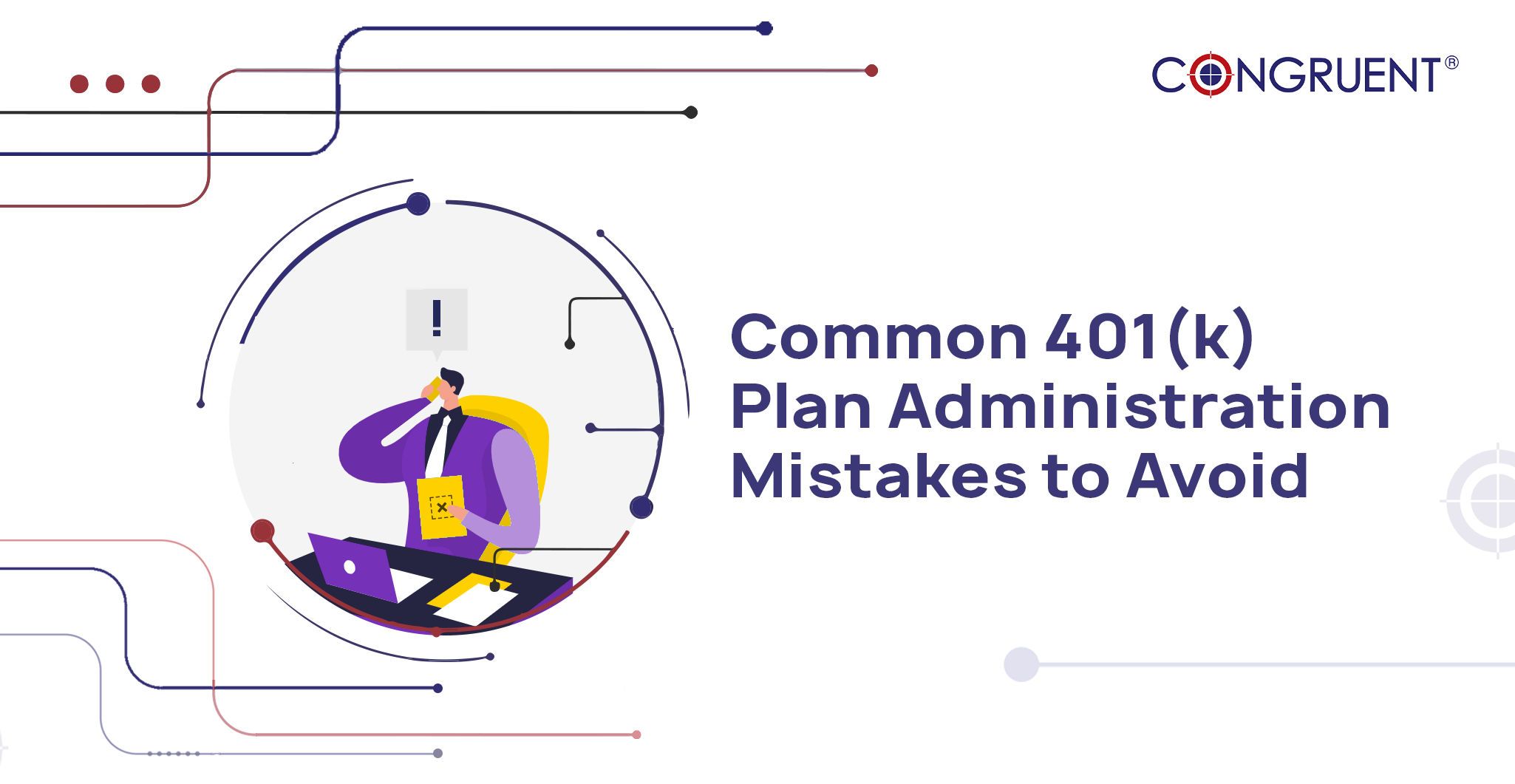
Introduction
A well-managed 401(k) plan is essential for retaining employees and ensuring their financial well-being. An improperly managed plan can lead to costly fines or even disqualification, which may have significant consequences for both the employees and the sponsoring employer.
As a 401(k) plan administrator or recordkeeper, your primary goal is to avoid key mistakes in plan management. Here are seven common pitfalls you must watch out for and recommended best practices to ensure a stress-free plan administration experience.
Common 401(k) Plan Administration Mistakes
1. Not reading your 401(k) plan document
The plan document serves as a blueprint for managing and operating your 401(k) plan, so not reviewing it regularly can lead to compliance issues.
Best practice recommendations:
- Make it a routine to review the plan document every year.
- Ensure that all 401(k) plan operations match the written terms of the document.
2. Not staying updated with compliance changes
DOL, ERISA, and regulatory agencies amend tax and retirement laws regularly. Not complying with regulatory changes can lead to outdated plan documents.
Best practice recommendations:
- Keep track of legislative changes and regulatory guidance that affect your plan.
- Work with your plan consultant or attorney to update the document promptly.
3. Unclear definition of eligible compensation
Each 401(k) plan defines eligible compensation differently. It can impact deferral amounts and employer match contributions.
Best practice recommendations:
- Review the definition of eligible compensation in your plan document.
- Ensure your payroll system accurately calculates deferrals and contributions based on the definition.
4. Late payroll contributions
Delayed payroll contributions affect employees’ investment returns and may also lead to compliance issues and potential fines.
Best practice recommendations:
- Minimize the time between the employee’s payday and the deposit of deferrals in the plan’s trust.
- Develop comprehensive procedures to ensure timely contributions.
5. Not diagnosing failed compliance tests correctly
A failed compliance test can indicate more significant problems. It requires proper diagnosis and corrective actions.
Best practice recommendations:
- Work closely with your plan advisor to diagnose and correct failed testing.
- Determine if any plan design changes can help prevent future failures.
6. Failing to distribute notices and disclosures on time
Late or missing notices can lead to financial penalties and employee dissatisfaction.
Best practice recommendations:
- Develop a calendar to track distribution deadlines.
- Keep an electronic and paper file of all distributed notices for easy review.
7. Unclear communication to employees of the rules for distributions and loans
Misunderstandings about the plan rules for distributions and loans can result in misconceptions. It even means costly mistakes for participants.
Best practice recommendations:
- Distribute comprehensive, easy-to-understand summaries of the plan’s distributions and loan provisions.
- Make the plan’s rules accessible to employees through various channels, including email, company intranets, or printed materials.
Conclusion
Maintaining vigilance as a 401(k) plan administrator or recordkeeper is critical. You must proactively fix administrative errors and avoid severe consequences for your clients and their plan participants.
Congruent Solutions provides outsourced 401(k) plan administration. Contact us today to learn how we help Plan Providers, Record keepers, and TPAs manage their plans.
